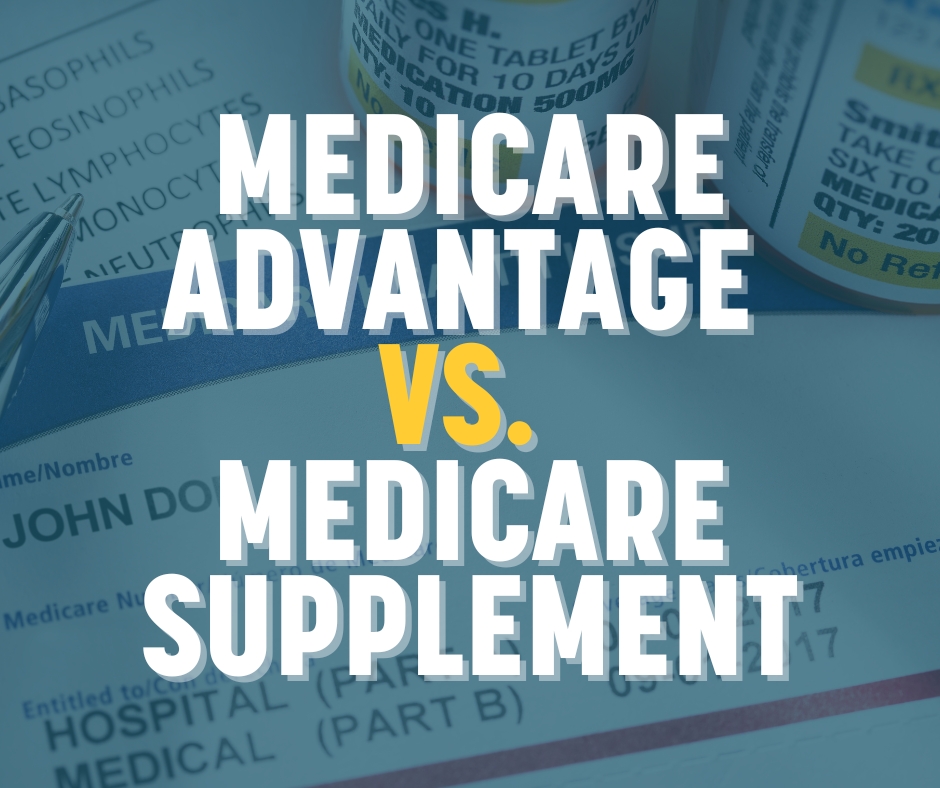
If you’ve turned on the TV in the fall, you’ve seen it: endless commercials promising Medicare plans with “$0 premiums” and “extra benefits.” It sounds like free healthcare. But when something sounds too good to be true, it often is. And in this care, Medicare Advantage really, really is.
Choosing between Medicare Advantage (Part C) and Medicare Supplement (Medigap) plans is one of the most consequential retirement decisions you’ll ever make. Get it wrong, and your older, less-healthy self could face restricted access to care, denied services, or skyrocketing out-of-pocket bills. For example, healthcare costs are becoming the number one reason retirees are filing for bankruptcy.
This guide will break down the differences, show you how the incentives behind these plans shape the advice you hear, and help you determine which path truly gives you more freedom, protection, and peace of mind.
At first glance, Medicare looks simple. You get Part A (hospital) and Part B (medical), often referred to as “Original Medicare.” But here’s the catch:
That’s why most retirees need secondary coverage, and this is where the maze begins. In many areas, you’ll face 40+ plan options. Some highlight “free dental” or “silver sneakers gym memberships.” Others promise low monthly premiums. But marketing doesn’t always tell the full story, and retirees often end up choosing based on perks instead of protection. They aren’t thinking about their health down the road.
What is Retirement Planning (And What Should It Be)?
Here’s something most people never hear: the plan your advisor recommends may depend on how they’re compensated.
This doesn’t mean every agent is biased—but it does mean you need to be cautious when Medicare Advantage is being pushed as the “obvious” choice. Sometimes the best plan for you is the one you never hear about.
The problem we have with Medicare Advantage plans is that they are marketed (and named) to be the best choice. As a relatively new retiree who is in pretty good health, you might have thought that all those perks are well-worth the little they ask of you, but it’s just not the truth.
For example, see this video we made on how Medicare Advantage is going to implode sooner rather than later.
Medicare Advantage replaces Original Medicare. You enroll in a private insurance company’s network plan, which then manages your care.
Advantages
Risks
Real-World Warning:
The American Society of Clinical Oncology found that Medicare Advantage patients with cancer received statistically less care and had higher mortality rates compared to those with Original Medicare. Don’t believe us see
And this piece about cancer patients having a hard time and this about the issues Medicare Advantage plans have caused for patients.
There are cases in which it really is the only option, but we beg you to consider all of your options before committing to this plan.
One of the biggest complaints we hear about Medicare Supplements is the cost. If that is also your concern, please watch this.
Medigap doesn’t replace Medicare. It works alongside Part A and Part B, covering the 20% and other gaps left behind.
Advantages
Risks
Check out our guide to Medicare.
This is one of the most powerful but least advertised Medicare options is High Deductible Plan G (HDG).
And why, you ask, do you rarely ever hear about it? Agents earn very little commission and Advantage pays five times more. Marketing dollars always flow to the most profitable product, not the best one.
How Does HDG Work?
This means your maximum annual exposure is predictable, and you keep unlimited provider choice. Also, you will not be denied coverage based on the whims of your insurance.

Dan’s father had an 8-day hospital stay totaling $65,000. Medicare approved $64,000, leaving just $1,400 out-of-pocket—applied to the HDG deductible. After that, nearly all medical costs were covered for the rest of the year.
No pre-authorizations. No forced doctor changes. No randomly denied claims.
Choose Medicare Advantage if:
Please read this: Why Medicare Advantage is BAD
Choose Medicare Supplement (especially High Deductible Plan G) if:
Medicare decisions should be about your long-term health needs, not what’s profitable for someone else. The issue is that the marketing for Advantage plans is heavily deceitful. While Advantage plans promise short-term perks, they can expose you to restricted care and higher costs down the road.
On the other hand, Medicare Supplement—especially High Deductible Plan G—offers retirees the freedom, stability, and peace of mind they deserve. And the only change you are subject to is when the whole nation faces a rate change, which is rare. It’s a lot less rare than an insurance company changing their mind about a life-changing or life-saving procedure last minute. It’s also not going to get worse or more expensive as you age; a problem
You worked your whole life to earn these benefits. Don’t let marketing decide how you’ll use them.
What’s the difference between Medicare Advantage and Medicare Supplement?
Medicare Advantage replaces Original Medicare with a private plan that limits networks and requires prior authorizations. Medicare Supplement works alongside Medicare, covering gaps without restricting provider choice.
Why are Medicare Advantage plans advertised so much?
They pay higher commissions to agents and insurers—making them far more profitable to sell than Supplements like High Deductible Plan G.
Is Medicare Advantage always a bad choice?
Not always. It may be suitable if you’re healthy, budget-constrained, and comfortable with networks. But for retirees with complex or long-term health needs, the risks can outweigh the benefits.
What’s the most cost-effective Medicare Supplement option?
High Deductible Plan G often provides the best balance of affordability, protection, and provider freedom.
Lorem ipsum dolor sit amet, consectetur adipiscing elit, sed do eiusmod tempor incididunt ut labore et dolore magna aliqua. Ut enim ad minim veniam, quis nostrud exercitation ullamco laboris nisi ut aliquip ex ea commodo consequat. Duis aute irure dolor in reprehenderit in voluptate velit esse cillum dolore eu fugiat nulla pariatur.
Block quote
Bold text
Emphasis